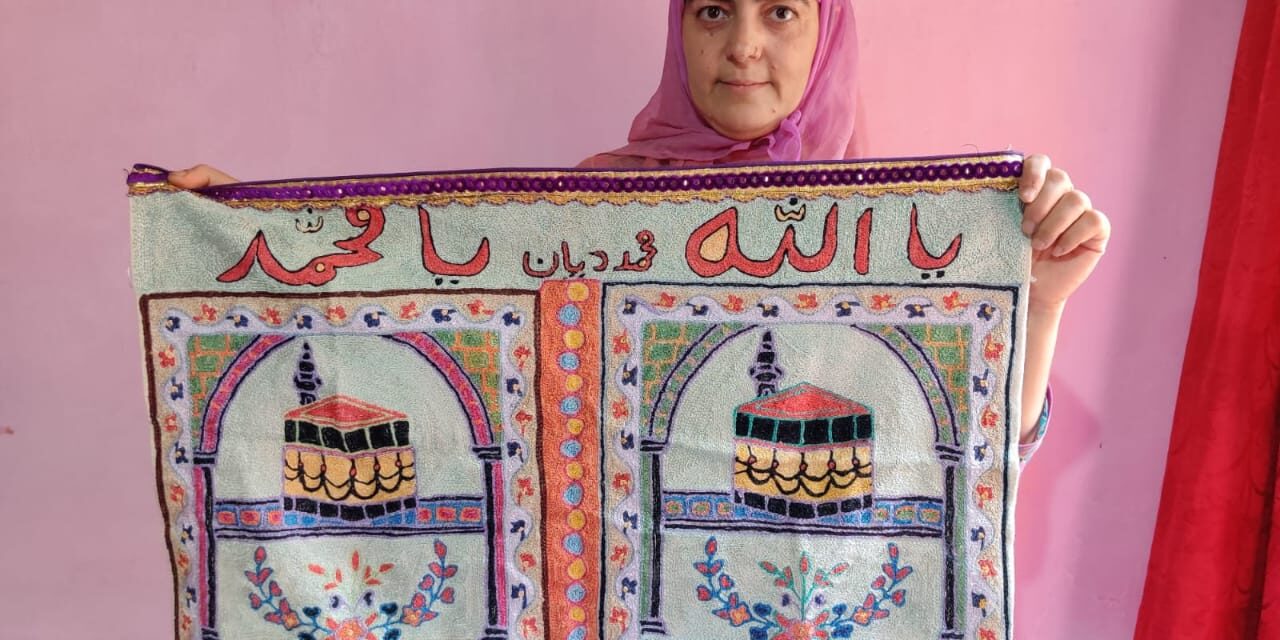![]()
Srinagar, Aug : Sheerifa Shabir, a 45-year-old resident of Fatei Kadal in Srinagar’s downtown, has been involved in the traditional art of Aari-Work for many years. Even as a mother of one child, she continues to thrive in her work.
The Aari work involves intricate bead and needlework, often featuring floral motifs.
“I create curtains, pillows, decorations, and more. The workload isn’t as substantial as it used to be, but I find it satisfying. Ever since the lockdown in 2019, I’ve dedicated more time to my passion, and I’ve been persistent since then,” shared Sheerifa.
“The charges for my work are based on weight. For example, the more thread we use in curtains, the higher the cost. Similarly, I charge 25-30 RS per piece for pillow work. There’s also another type of curtain made from velvet, commonly known as ‘Makhmal,’ for which I receive RS 1600 per KG,” she said.
“It takes me about 10 to 12 days to complete one curtain, and it’s quite challenging, but I genuinely love my job. As for cushions, I can create two pieces per day,” she added.
Moreover, Aari embroidery is one of the oldest forms of embroidery in India. Its history dates back to the 12th century when Mughal emperors were captivated by floral motifs and traditional designs.
“Kashmiri Aari products are now renowned globally and have a high demand both internationally and locally. The Kashmiri Ari-pheran, for instance, stands as an example of the popular items crafted under this Aari work tradition.”.Agencies

























